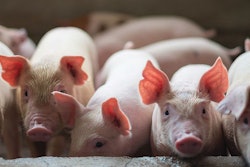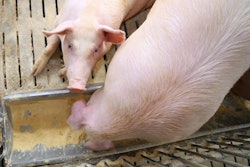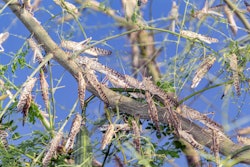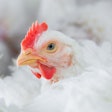
Deadly pig disease appears to be under more control in China, Cote d’Ivoire and South Korea.
In Nigeria, the number of pigs lost to African swine fever (ASF) is reported to be approaching 1 million.
Local media in the West African state are reporting a deteriorating situation regarding ASF outbreaks among the nation’s domestic pigs.
Nigeria’s pig farmers report that the outbreak is the largest the country has experienced. Mortalities have already reached “hundreds of thousands,” reports The Cable. Financial losses are put at NGN20 billion (US$52 million), and 20,000 jobs are at risk.
According to the report, ASF outbreaks began in the southwestern states of Lagos and Ogun during 2019, and the infection then spread to other parts of the country.
Information from the World Organisation for Animal Health (OIE) indicates that ASF has been present among domestic and wild pigs in Nigeria for many years.
Last week, local media reported that ASF has devastated one of the country’s largest pig farms.
ASF has been confirmed in Lagos and Abia, and is suspected in three more states, according to the federal agriculture ministry. It has reported to the OIE that levels of mortality and morbidity have suddenly become “very high.”
First signs were observed in February, but these escalated dramatically during May and June, according to the OIE notification. Affected have been mainly village pigs, but also a large farm that supplies pig markets within and outside of Nigeria, according to the ministry. It has not provided details of the number or location of the outbreaks, or the scale of pig losses.
ASF ‘resolved’ in Cote d’Ivoire
Another West African state — Cote d’Ivoire (Ivory Coast) — has reported to the OIE that the ASF situation has been “resolved.”
There have been no new outbreaks since the three reported between mid-July and early August of last year, according to the country’s veterinary authority. Affected were herds of pigs farmed in a traditional method in two departments in the western district of Montagnes. Almost 12,000 pigs were affected by these outbreaks, and the great majority died.
At the time of the outbreaks, the source of infection was attributed to the introduction of new animals. Free-range rearing, swill feeding, and unregulated slaughter and selling were blamed for further spreading the ASF virus.
More wild boar infected in South Korea, Russia’s Far East
Over the past week, the deaths of three more wild boar have been reported in South Korea. All tested positive for the ASF virus. According to the official report to the OIE from the country’s agriculture ministry, the infected animals were found in the provinces of Gyeonggi and Gangwon.
All of the 600 previous cases in wild boar have been detected in these provinces in the north of the country since September 2019.
Russia’s animal health agency has confirmed to the OIE that four wild boar recently found dead in Primorsky krai have tested positive for the ASF virus.
China to monitor all pig movements
In China, the agriculture ministry is to step up its control over the transportation of pigs.
From the start of July, anyone undertaking pig movements must first register on a social media platform, reports the Xinhua news agency. Together with the users’ personal details and the pig’s health certificate, the authorities will be able to monitor the movements of every pig.
Aim of this new system is to reduce the risk of the spread of ASF.
After a previous ASF outbreak, China’s agriculture ministry reports that restrictions have been lifted in Yongdeng county in Gansu province. This comes after a period of 21 days with no further detection of the virus.
Last month, the disease hit a farm with around 10,000 pigs in the county, which is in the Lanzhou city region.
In Europe this week, ASF was confirmed at two farms in Poland, and one in Romania, as well as in more backyard herds and wild boar.
View our continuing coverage of the global African swine fever situation.


















